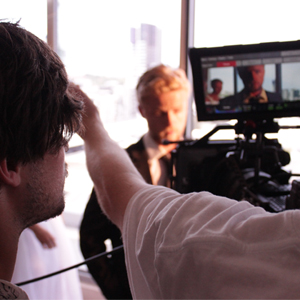When looking to produce a short film, the most important item is the script.
 Everything emanates from the script; the number of cast, locations, props and schedule, all of which are reflected in the budget. When looking to keep costs down, the simplest and most effective way is to mind the script.
Everything emanates from the script; the number of cast, locations, props and schedule, all of which are reflected in the budget. When looking to keep costs down, the simplest and most effective way is to mind the script.
Once the script is completed you need to schedule and budget your film. The schedule should reflect the most efficient way to shoot your film. Think of how you can keep the number of locations down and keep it close to home.
When starting out making short films, every filmmaker needs to learn to budget, and more importantly, keep the costs down to fit the budget. Keep in mind to keep it realistic so you have a good chance of financing your production, especially if you are thinking of crowdfunding to pay for your film.
Plan
Your production schedule and budget should not only include pre-production, production and post production but marketing as well. Head of Production at AFTT Andrew Williams argues that “The reason filmmakers make films is to showcase their skills by entering their film festivals, so don’t forget to allow a money to do so. Work out in advance where you would like to showcase your film.”
It is better to over-estimate than underestimate and consequently run out of budget. Any money left over can always go into stronger marketing for your film.
Locations
Head of AFTT’s Film course Woody Naismith advices to “utilise friends and family for their houses, gardens, businesses and property. If there is a location you absolutely want have the tenacity to approach the owners, at worst they can only say no."
Look for cheaper alternatives such as Air BnB, and always ask for permission from the appropriate councils if looking to use free locations such as parks. Having one primary location can also really cut costs, not only by saving on various location fees, but by cutting the costs of transporting crew and equipment, and saving time bumping in and out.
Utilise your crew
Assemble a team that are capable of working on small budgets and can think outside the box when the time comes to problem solve and improvise. Each member of your crew will have different skills and experience so make the most of that.
“Although the pressure would be on to use your mates I suggest that you allow for a more experienced crew, especially your Camera, Sound and Editor so they use their experience to guide you and keep your film on schedule. Making a film is a huge learning curve for a first-time director.” Williams advises.
Logistics
Make sure all your cast and crew can get to and from location and that you can get in and out easily. You want to be filming not travelling. Above all make sure your catering is first class as it is one thing that can define your career. Have good food and your crew will do anything for you.
Sound
Never forget that sound is half the movie. You may have the most beautifully shot film in history, but if you have bad sound, then it’s not worth making. Having good, clean sound is the best way to make your film appear stronger, so spend time making sure your sound is strong. Don’t forget to think about the music you are using also. Film Makers can often get cheap or free scores on websites, or you can get an unsigned band to perform. Just be careful with the copyright of the music you are using.
The best piece of advice we can give you it to plan in advance every possibility of where money could be spent, and then consider ways to reduce these costs. However, be careful not to avoid spending money where it has to be spent. Some costs you just HAVE to include and cannot cut corners on. For example, sometimes you’ll need to accept that you need an expert, whether that be an armourer, a student performer or a lawyer.
Good luck!
Find out more about studying Screen and Media: Film making at AFTT.